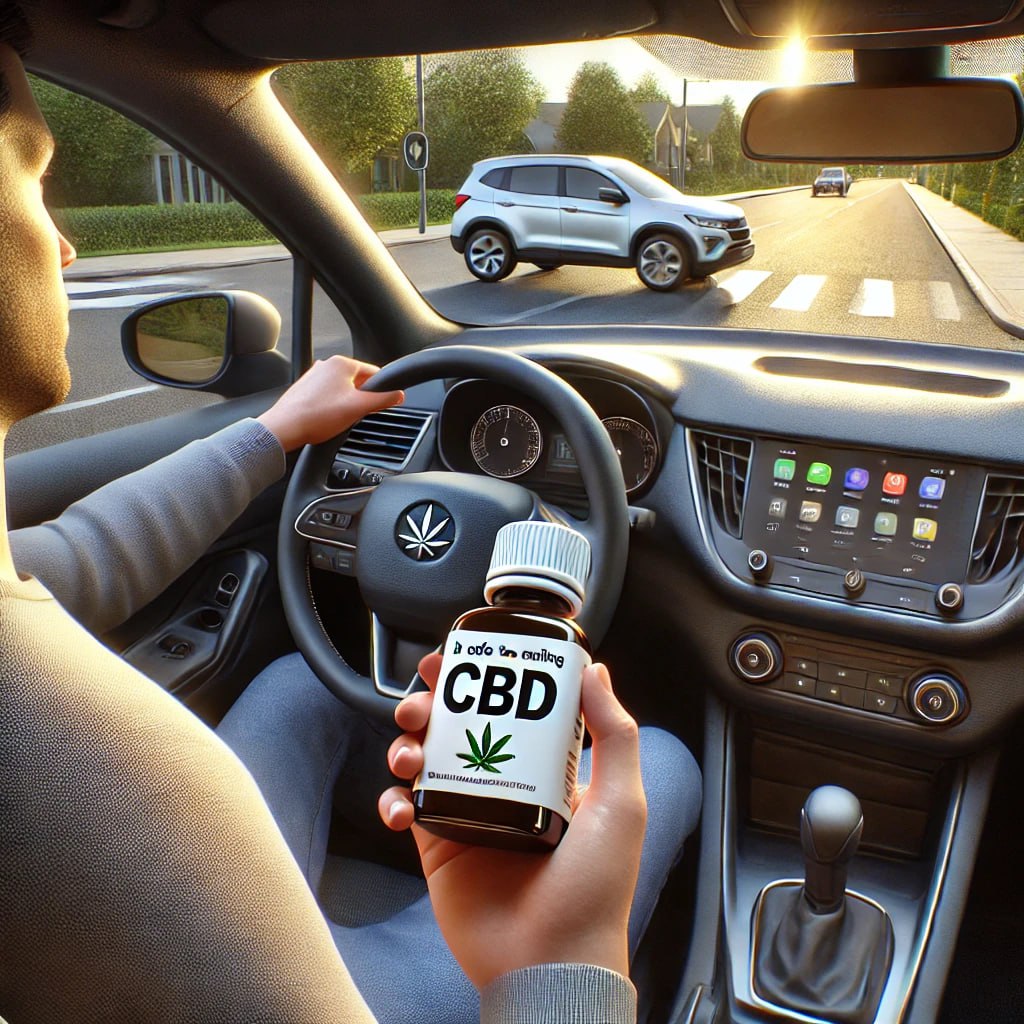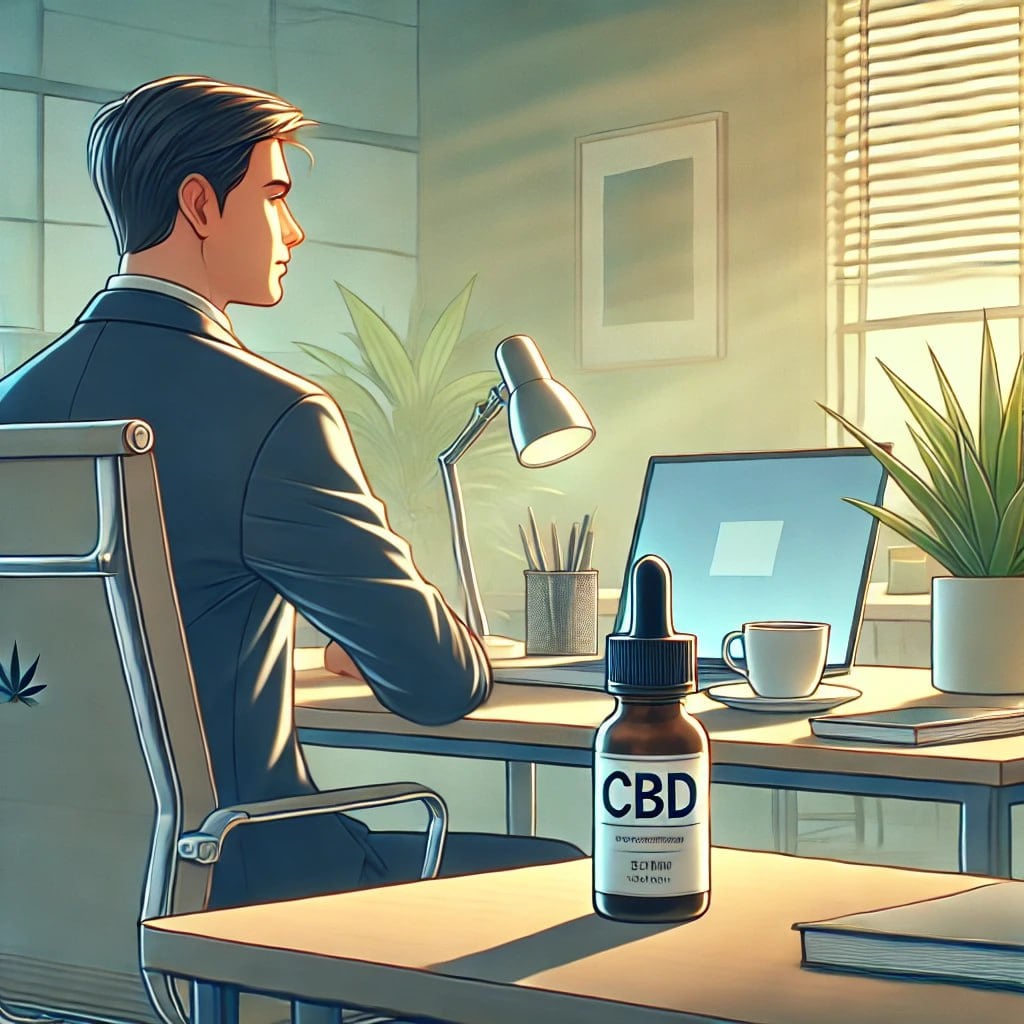There is no denying CBD popularity. From oil tinctures to gummies and even infused skincare products, CBD is everywhere. People talk about its possible benefits for relaxation, stress relief, and sleep support. However, just like any supplement or wellness product, CBD isn’t a universal solution. I believe it’s crucial to talk about the potential downsides as well. Let’s dive into how exactly CBD works and where side effects might come from.
How CBD interacts with the body
CBD interacts with the endocannabinoid system (ECS) — a network of receptors that regulates processes like mood, appetite, sleep and immune function. It doesn’t directly bind to these receptors in the same way THC does. It modulates the ECS functions, helping restore balance in areas like anxiety levels or pain perception. CBD acts more as an indirect influencer rather than a direct agonist (like THC). Some people barely notice a shift, others feel a big difference. This variability is also a prime reason why side effects can differ so widely from person to person.
Common mild side effects of CBD
- Dry mouth
Many people find that CBD makes their mouth feel uncomfortably dry. I’ve had this happen myself when I increased my usual dose. Staying hydrated before and after taking CBD can help reduce that parched feeling. - Drowsiness or fatigue
Some of my friends who’ve tried CBD for stress relief or insomnia reported feeling extra drowsy. It can be inconvenient if you’re taking CBD before work or driving. Always start with a low dose to see how your body reacts. - Changes in appetite
CBD is often linked to appetite regulation, so it’s not unusual for some people to feel hungrier—or less hungry—than normal. Personally, I haven’t noticed big shifts, but I do know a few people who said their eating patterns changed slightly after consistent use. - Gastrointestinal upset
CBD can lead to mild issues like nausea or diarrhea. These symptoms can only appear when taking too large a dose on an empty stomach. If you’re prone to sensitive digestion, consider taking CBD with food.
Less common but notable side effects
- Lightheadedness
I’ve only experienced this once after a high dose of a CBD tincture. A quick snack and some water helped, but it can be concerning if you’re not expecting it. - Low blood pressure
This isn’t an everyday complaint, but some users report drops in blood pressure after taking a large dose. - Potential liver enzyme alterations
In rare cases high doses of CBD may affect liver enzymes. If you have liver issues or take medication that affects liver, you might need regular check-ups to ensure everything stays within normal levels.
Factors that increase the risk of side effects
From my own reading and conversations with healthcare professionals, I’ve learned that several factors can raise the likelihood of side effects:
- Dosage: Higher doses of CBD tend to produce stronger effects—and this can include unwanted ones.
- Individual sensitivity: Just like some people can drink strong coffee without the jitters, others might be more sensitive to CBD.
- Existing health conditions: If you have chronic health issues or compromised immunity, your body might react differently to CBD.
- Product quality: Not all CBD products are created equal. Poorly made products can contain contaminants or incorrect CBD concentrations, increasing the risk of adverse reactions.
CBD and drug interactions
CBD can interact with other medications. Similar to how grapefruit can interfere with certain prescription drugs, CBD may slow down or speed up how your body metabolizes medications. If you’re on prescribed meds please talk to a doctor or pharmacist before trying CBD. It’s much safer to double-check potential interactions.
Tips for minimizing adverse effects
There are a few strategies that help reduce the odds of unpleasant side effects:
- Start low, go slow: Begin with a minimal dose — 5–10 mg is enough to determine how your body reacts.
- Choose quality products: Always look for third-party lab results to confirm you’re getting pure CBD without harmful additives.
- Stay hydrated: This goes a long way in preventing dry mouth and potential dizziness.
- Consider timing: If CBD makes you sleepy, try taking it before bed rather than in the morning.
- Check with professionals: If you have pre-existing diseases or take medication, get advice from a healthcare provider.
Summary
CBD can be an incredible tool for relaxation, stress management and overall well-being. However, it’s not risk-free. There are common side effects like dry mouth, drowsiness, appetite changes and digestive discomfort. More serious interactions and effects can occur under certain conditions or at higher doses.
Key to getting the most out of CBD lies in understanding how your body responds, choosing top-quality products and keeping open communication with healthcare professionals. In case you’re a seasoned user or just starting to explore the world of CBD, staying informed will help you make the best decisions.
Disclaimer: This article is for informational purposes only and does not replace professional medical advice.



